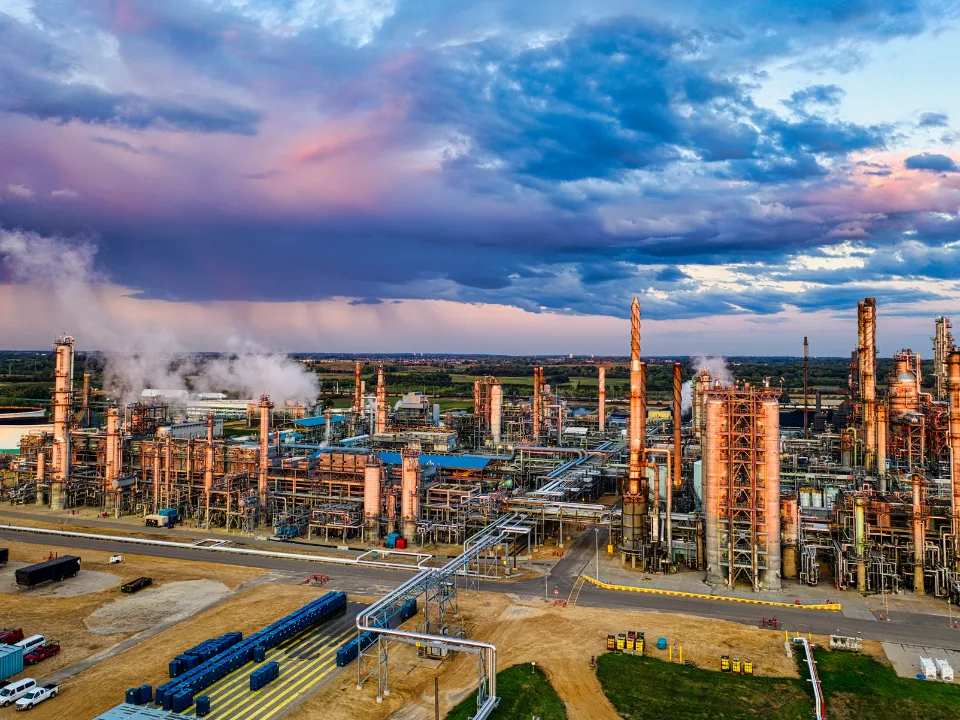- President-elect Trump plans to expand fossil fuel and nuclear energy to meet growing electricity demands for AI data centers.
- His administration aims to ease environmental and regulatory barriers to speed up infrastructure development.
- Industry leaders are optimistic about faster project timelines, but environmental advocates warn of increased emissions and climate risks.
As reported in Bisnow, the incoming Trump administration is planning to prioritize AI data center growth as a critical element of U.S. economic and technological competitiveness.
The AI Blueprint
To meet the surging electricity demands of the current genAI boom, Trump has pledged to expand fossil fuel and nuclear energy production while lowering regulatory hurdles that currently slow down infrastructure projects.
This approach is a major departure from the Biden administration’s current strategy, which is focused on balancing nuclear power expansion with a transition to renewable energy.
While both administrations agree on the importance of growing AI data centers, Trump’s reliance on deregulation and traditional energy sources has sparked a divide across the industry.
The Power Crisis
The ongoing AI revolution has placed unprecedented strain on the already taxed U.S. power grid. Case in point: utilities are facing delays of up to a decade in connecting new facilities, leaving developers struggling to keep up with surging demand.
Biden’s energy policies emphasize the recommissioning of nuclear plants and the integration of cutting-edge technologies like small modular reactors. However, efforts to retire coal and gas plants created gaps in “baseload” power—the consistent energy supply critical for data centers.
Meanwhile, Trump’s energy plan seeks to extend the life of coal and gas plants, accelerate nuclear facility construction, and fast-track pipelines and substations. Michael Rechtin, a partner at DLA Piper, notes this shift has been met with growing optimism: “The industry feels confident about Trump’s intent to broaden the energy mix and speed up project timelines.”
Industry Reactions
While industry leaders welcome the prospect of fewer power shortages, environmental groups are on high alert. Ali Fenn, president of AI data center developer Lancium, acknowledges the trade-offs: “Environmentally, it’s not ideal, but from a growth perspective, it ensures we meet demand.”
Critics argue that Trump’s reliance on fossil fuels and deregulation undermines global efforts to reduce emissions. However, proponents highlight the potential to address immediate power constraints more effectively than renewable solutions, which require longer lead times.
Get Smarter about what matters in CRE
Stay ahead of trends in commercial real estate with CRE Daily – the free newsletter delivering everything you need to start your day in just 5-minutes
The Road Ahead
As the U.S. races to meet growing AI-driven energy demands, Trump’s energy agenda could reshape the data center industry—balancing faster development against the environmental challenges of prioritizing traditional energy sources.
His administration’s policies are expected to accelerate natural gas adoption for on-site data center power generation, especially in states with lenient regulations like Texas. Moody’s economist Ermengarde Jabir predicts natural gas will serve as a transitional energy source while nuclear projects are developed.
Utilities are already adjusting to the anticipated policy changes. Southern Co., for instance, has announced plans to reconsider coal plant closures, citing the likelihood of relaxed emissions rules under the Trump administration.

















